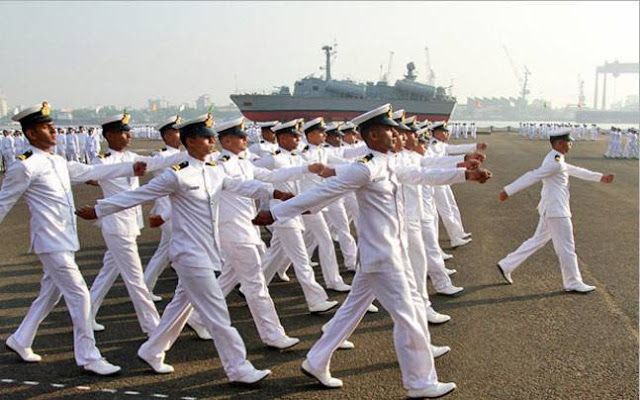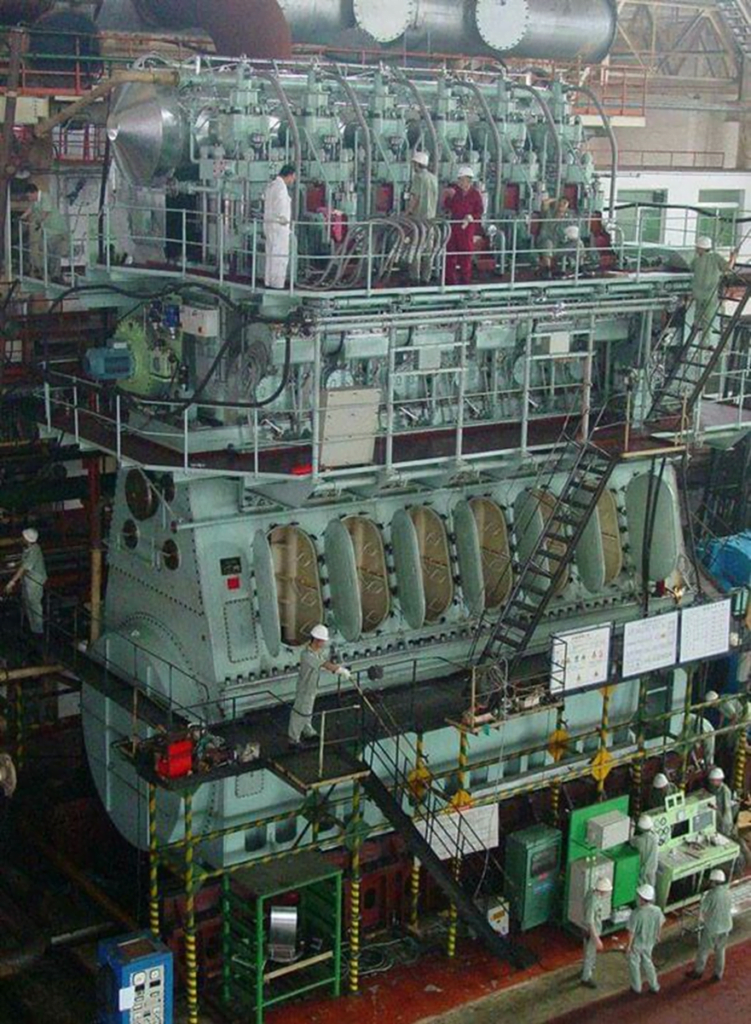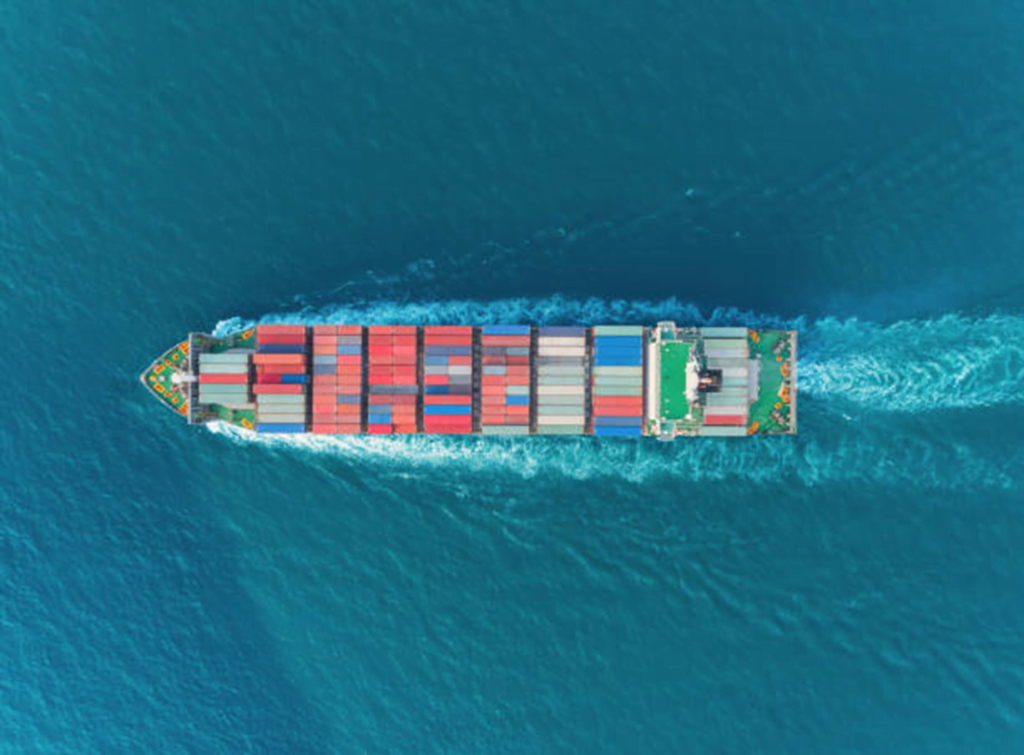Merchant Navy

Merchant Navy mainly deals with transporting cargo and occasionally, passengers, by sea. It has different fleets composed of passenger vessels, cargo liners, tankers, Bulk carriers, Car carrier, containers as well as the other special types of vessels. Merchant Navy is the backbone of international trade, carrying cargo across the globe for Import & Export business.
Merchant Navy meaning:
The term “Merchant Navy” means a fleet of commercial ships that are not used for military purposes. The ships and the crew of the merchant navy are a part of the country’s commercial shipping.
What is Merchant Navy?
- Merchant navy is a specialized industry that is fully engaged in commercial activities involving the transportation of cargo and passengers through sea routes.
- Also termed as “Merchant Marine” in some countries, the field of the Merchant Navy is an important part of the global shipping sector and is an integral component of any nation’s economic development.
- As the majority of the world’s commercial activities are carried out through the sea routes, the field of merchant navy has far more prominence across the globe.

Evolution of Merchant Navy:
- The modern shipping industry has come a long way from the olden days of ships with sails.
- The modern cargo ships are massive in size and are equipped with the latest and highly advanced technology systems.
- This invisible industry and its unsung heroes play a great role in the development and progress of the global economy.

Types of Ships in Merchant Navy:
Merchant navy professionals mainly work on cargo ships or commercial vessels. Some of the main types of ships they work on are:
- Container ships
- Bulk carriers / Bulkers
- Tanker ships
- Passenger ships/cruise ships
- Ro-R0 ships (Roll-On Roll-Off vessels)
- Ferries
- Offshore vessels, etc.

Benefits of Merchant Navy
Higher salary: A job in this field is lucrative because of the higher salary and growth potential. Also, most of these jobs offer other perks along with the salary.
Chance to travel: as you transport goods from one place to another, you may get a chance to travel to different parts of the world.
Exposure to different cultures: A professional working in this field often meets people from different cultures and nationalities. It helps them learn nuances of other cultures and increases their adaptability to work with individuals from different countries.
Extensive work exposure: As you may spend most of your work hours on the ship, you are likely to face unprecedented situations and emergencies. Therefore, the exposure and learning you receive from this job profile is extensive and unmatched.
Merchant Navy Officers:

- The professionals working on these commercial ships are called mariners or sailors or seafarers or seamen.
- If you want to pursue a career in this field, it is important to understand the skills, qualification and eligibility criteria required to join the merchant navy.
Skills required to become a Merchant Navy Officer
Here are some key skills that you should have before joining the merchant navy:
These professionals often have to take an important decision regarding the cargo or safety and maintenance of ships. Therefore, employers prefer candidates with excellent leadership skills because leaders are confident, honest and possess a positive outlook for every problem they encounter. In addition, leadership techniques can help them inspire and influence other staff working on the ship.
You have to work with multiple teams offshore. So, it is important to get the right message across and avoid instances of miscommunication. Being able to communicate your ideas to ensure everyone understands what you are saying is a desirable merchant navy skill.
Critical thinking
During the sea-voyage or while working offshore, you may encounter problems. Therefore, navy officers need to have critical thinking skills to help them find a viable solution. So, these officers should think clearly and rationally to come to a logical solution to the problem at hand.
Teamwork
A navy officer works with an in-house and offshore team to ensure the safe delivery of cargo. The ability to work in a team is a skill that employers prefer in candidates for such job roles. Also, using their teamwork skills, a navy officer can combine ideas with colleagues to achieve a common goal.
Self-control
Self-control is the ability to regulate your behaviour, emotions and thoughts to avoid inappropriate behaviour and accomplish your goals. Employers expect these professionals to have excellent self-control because sailing for most of the year can be challenging and candidates may face immense emotional and mental pressure. So, you should be emotionally strong and have a sense of responsibility against your duties and the safety of others on the ship.
Merchant Navy Jobs:

Career in Merchant Navy
The merchant navy is a global industry with several nationalities working together on different types of vessels. The industry offers excellent career opportunities both at sea and onshore. Efficient transport by sea is extremely important, particularly for a country like India, which has a long coastline and glorious maritime traditions. Indian Merchant Shipping comprises of Passengers vessels, Cargo liners, Tankers, Carriers, Container vessels and many other types of specialized ships. These ships are operated by public and private sector shipping companies and manned by trained navigators, marine engineers and crew members.
The Merchant navy career options mainly includes the following category:
- Navigating officers (Deck side officers)
- Marine engineering Officers (Engine side officers)
- Crew members (To assist the officers)
- Specialized officers (Electrical officer, Radio officers)
Shipping companies offer these positions on contracts for a period of 6 to 9 months. After finishing the contract period, the officers can enjoy leave & whenever they want to join back, the company will absorb them immediately.
Presently the demand for Marine Engineers & Deck officers are high worldwide. The shipping companies are facing great shortage for the Deck & Engine officers. Hence the trained persons are getting immediate job opportunities all over the world.
NAVIGATING OFFICERS TEAM (DECK SIDE):
They are responsible for the navigation of the Ship, the loading / discharge of cargo, radio communication and the control / safety of the crew, and passengers. The chief navigator of the ship is the master, who decides the course of the voyage and maneuvers the vessel. He exercises complete control over the officers, crew and any passengers on board the ship. From the trainee cadet level, one will be promoted to captain of the ship with proper sea-experience & further exams.
- Captain
- Chief Officer
- Second Officer
- Trainee Cadets
ENGINEER OFFICERS TEAM (ENGINE SIDE):
The ship’s engineers have complete responsibility of the ship’s engine room i.e., the main engine, boilers, pumps, hydraulic fuel systems the ship’s electrical generating plant and distribution system. From the trainee engineering officer level, one will be promoted to Chief Engineer of the ship with proper sea-experience and further exams.
- Chief Engineer
- Second Engineer
- Third Engineer
- Fourth Engineer
- Junior Engineering cadets
CREW TEAM:
The GP crew involve with all kind of day to day activities to assist either to Chief officers in Deck side or Second Engineer in Engine side. One can get Promotion from GP crew position to Captain level or Chief Engineer level with proper exams and sea experience. The catering crew will perform the food preparation and kitchen activities. The specialized fitters & welders are very much needed for various types of vessels.
- GP Crew (Deck & Engine crew)
- Catering crew (Saloon Department)
- Fitters, Welders Etc.,
Marine Engineering:
A Modern ship consists of a host of complex and sophisticated machinery like large diesel engines, boilers, steam engines, steam turbines, gas turbines, alternators, pumps, crosses, winches, compressors, refrigeration & air-conditioning plants etc.

- The role of the Marine engineer is to perform the task of operating and maintaining these machinery safely and efficiently which requires a high degree of skill and expertise.
- As an engineer on board, be ready to do a lot of work using your hands, no matter what rank you are. Don’t be hesitant to “get dirty” and use a lot of physical strength.
- Unlike engineers in other fields who always have people to assign jobs to, marine engineers on board have to perform a lot of jobs on their own, many times without any assistance, as the manpower on board is limited.
- Maritime professionals belonging to the engine department are responsible for maintaining and operating machinery on ships, both in the engine room and on deck. Engine personnel will be in “boiler suit” most of the time.
Marine Engineer:

Career Prospects for Marine Engineers
- After the cadets complete the Marine Engineering Pre sea training course successfully, the student are eligible, to be appointed as Junior Engineer on Merchant Ships.
- On completion of the stipulated period on ships and after passing the required competency Examination conducted by the Directorate General of Shipping, Govt. of India or Marine Administration of other governments, the Engineer becomes a Chief Engineer of a ship within 6 to 7 years.
Nautical Science

- Nautical science is the multidisciplinary subject which deals with the study of techniques, and knowledge involves navigating and operating a ship safely.
- This course will lead the candidates to become the Captain of the ship. Captain of the ship is also referred as Master mariner. On successful completion of this pre-sea training, the candidates are eligible to become nautical Deck Cadets on board a ship. With further sea service & exams, they will be promoted to Chief Officer and then becoming Captain of the ship.
- As a deck officer, one will be responsible for navigation, cargo operations and other deck jobs on ships.
- As the main jobs of a deck officer will be navigating the ship and handling cargo operations, be ready for long hours of work both at sea and onshore (Someone joining the engine department should also be ready for the same). A deck officer will be in uniform most of the time.
Merchant Navy Hierarchy:

Professionals from each of these departments are classed into a hierarchy system. The following are the Ranking based on Seniority level.
Deck department
- Chief officer/ mate
- 2nd officer/mate
- 3rd officer/mate
- Deck cadet
Apart from officers, each depart also has ratings (also called deck ratings). Their ranking is as below:
- Bosun (head of the rating staff)
- Welder/Fitter (this rank renders his services to both the deck and engine department)
- Able-Bodied Seaman (AB)
- Ordinary Seaman (OS)
- Trainee OS
Engine department:
A general overview of the ranking system is as follows:
- Chief / First engineer
- 2nd engineer / First assistant engineer
- 3rd engineer / Second assistant engineer
- 4th engineer / Thirst assistant engineer
- 5th engineer / Engine Cadet
- Electrical officer (ETO)
Just like the deck department, the engine department also has ratings. Their ranking is as below:
- Fitter
- Motorman
- Wiper
- Trainee Fitter / Trainee Wiper
Saloon department:
- Chief cook
- Trainee cook
- Steward
CAPTAIN/ MASTER MARINER:
Though Captain comes at the top of the ranking system of the deck department, technically, the Ship Captain is above everyone on board.
Merchant Navy Salary:
Merchant navy salary depends on various factors like company, Type of ship, Rank experience, Flag of ship, etc. Salary in Tankers will be comparatively higher than other ships. Below is a very general range of salaries for understanding in USD ($):
- Junior engineer or deck cadet: 350-1000 USD
- 4th Engineer / 3rd officer: 2400 – 4200 USD
- 3rd Engineer/ 2nd officer: 4000-5000 USD
- 2nd Engineer/Chief officer: 5500 -11000 USD
- Chief engineer/ Captain: 8000 – 15000 USD
- Electrical Officer: 2500 – 4000 USD
- Pumpman: 1000-2400 USD
- Bosun: 1350 – 1800 USD
- Ordinary Seaman: 800-1100 USD
- Able Seaman: 1000-1400 USD
- Fitter: 1000 – 1500 USD
- Oiler: 800 – 1300 USD
- Engine Rating/ Wiper: 600-1000 USD
- Chief Cook: 1400-2500 USD
- Steward: 600-1500 USD
How to Join Merchant Navy?
There are various Pre Sea-Training courses Approved by The Directorate General of Shipping, Government of India. Following are the courses to join Merchant Navy. Based on your choice of department you can opt for Deck or Engine Side career.
Merchant Navy Course
- B.E. Marine Engineering
- B.Sc. Nautical Science
- Presea Training for Graduates (GME)/ Graduate Marine Engineering
- Presea Training for Diploma Holders (DME)
- Diploma in Nautical Science
- Electro Technical Officers
- Training for General Purpose Ratings
Merchant Navy Eligibility:
Eligibility criteria varies for each course. Also, Physical fitness and eye sight requirement to be met for joining Merchant navy. Visit DG Shipping website for further details.
Merchant Navy Age Limit:
Visit DG Shipping website to check the correct age limit for various Pre Sea training courses.
How to Join Merchant Navy after 12th?
- After completing 12th with required marks, physical fitness one can join BE Marine Engineering/ B.Sc Nautical Science/DNS Course.
- Reputed institutions conduct interview and test to select cadets with Sponsorship. It is also important to check the Approval of institution in DG Shipping website as many institutions are banned.
Note: Merchant Navy is highly rewarding career but it is very difficult to get job if not sponsored at the time of admission. There is huge unemployment in Merchant navy for Trainees and Junior ranks. Many cadets spend lakhs of money to RPSL and recruiting agencies to complete their On board training which is essential for writing Competency exam. Also, there are lot of cases of Fake agencies cheating innocent cadets for placement.
Therefore, it is important to select correct institution, course with Sponsorship (Admission cum Placement). It is highly recommended to join institutes which are also a ship owning/managing company. The following are few institutes.
- Anglo Eastern Maritime Academy
- The Great Eastern Institute of Maritime Studies
- Maritime Training Institute – An integral part of The Shipping Corporation of India Ltd. (SCI) – the largest Indian Shipping Company
Sponsoring Companies:
- A.P. Moller – Maersk Admission & Recruitment Drive
- V Ships – Admission & Recruitment Drive
- Synergy Group – Conducts All India recruiting exam for selecting Engine & Deck cadets for their Vessels

All our dreams can come true, if we have the courage to pursue them.
– Walt Disney
LIKE WHAT YOU’RE READING?
CHECK OUT SOME OF OUR OTHER GREAT CONTENT HERE
- HOW TO START A CAREER IN ARTIFICIAL INTELLIGENCE?
- WHAT IS MACHINE LEARNING?
- DATA SCIENCE – THE ULTIMATE GUIDE
- HOW AI IS USED IN DIGITAL MARKETING?
- TOP 5 BEST SEO TOOLS(2022)




Having read this I thought it was extremely informative. I appreciate you spending some time and energy to put this article together. I once again find myself spending a significant amount of time both reading and posting comments. But so what, it was still worth it!
Thanks for your encouraging comment. I read your Blog as well. Very much informative and professional. Do check other articles at https://findinsights.in/